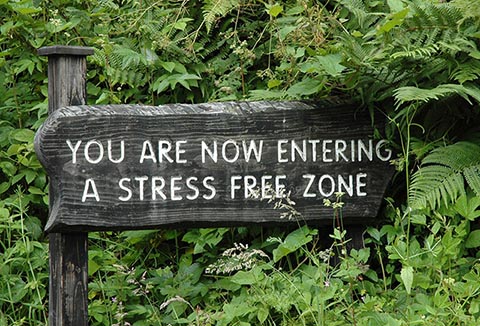Even as our lives become vastly more complicated in today’s fast paced environment.
Stress rears its ugly head: This eventuality may be part and parcel of our very one lives, or our professional workplace et el. Perhaps one of the most important stress points are our intergender relationships. This is because, even as we lose that one person we love more than anyone else in life, the singularly traumatic experience can substantially erode and even eventually degrade the overall quality of our collective (I.e. both personnel and work related as well) lives.
From a psychological perspective “stress’ can be broadly defined as “simply a reaction to a stimulus that disturbs our physical or mental equilibrium.” Even a remotely stressful event has the ability and the potential to trigger the ubiquitous “fight-or-flight” response, causing such hormones as adrenaline and cortisol to course through the body.”
This is by and large our own body’s perfectly natural reaction to both real and perceived harmful situations.
This is because there are times when we feel threatened, certain chemical reactions take place in the body that enables the body to act in a pre-programmed ( for want of a better word) way to prevent injury. This reaction is known as “the stress response”. During stress response, the heart rate increases, breathing quickens, muscles tighten, while the body also raises its blood pressure. It is essentially how the human body protects itself.
In small doses a stress response is necessary for survival. While driving for instance, it’s what causes us to slam on the brakes in an emergency. Similarly, in a life or death combat scenario, an adrenalin surge gives us that extra edge.
However, when we look at it from the long-term perspective, it can and usually does lead to severe medical complications both psychological and physiological such as depression, anxiety, eating disorders, and other problems such as sexual dysfunction, even heart attacks and strokes.
However, stress can and indeed should be controlled and the best way to do it is naturally rather than depending on heavy medication. Here’s how:
Get your friends to pitch in and help
The age-old adage “Two heads are definitely better than one” is as important today as it used to be in ages past. In other words, those who hold you dear, i.e. your friends and family are your best medicines when it comes to in fighting stress. Go out and meet up with them on a regular basis and up close and personal (that is) face to face whenever you feel troubled, and if that is not possible connect with them on the phone. This will help you acquire a new and broader perspective while at the same time keep you emotionally nourished as well.
Laughter is the best medicine
Laughter truly is the best medicine especially as a stress buster. It’s extremely difficult to feel stressed out when one is in stitches while watching a comedy flick or simply hanging out with goofy pals.
Water Therapy works too
Most of us fail to drink enough water i.e. actual fresh and pure cold water and not carbonated drinks. Since all of our organs, including our brain, are strongly dependent on water so as to be able to function properly. That is why without an adequate supply of water, stress is almost inevitable.
Exercise can get rid of stress as well:
Exercise is a great stress buster in its own right. In fact any activity that involves continuous physical exertion helps curb stress. . Walking, running, swimming, dancing, cycling, martial arts, aerobic classes all work great as stress busters. But whichever exercise you pick, make sure you enjoy it. Otherwise it would become a drag to continue and you will eventually lose interest.
Stress does not have to be part and parcel of our everyday lives. With the right precautions and actions, it can actually be controlled.






